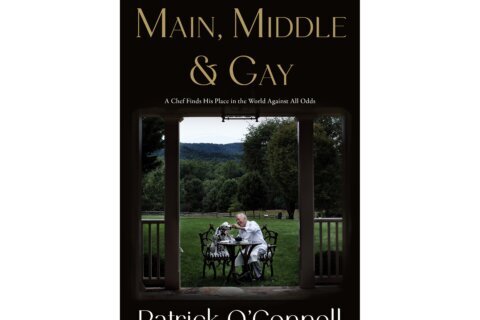In the decades to come, generations will picture Chadwick Boseman’s face when they hear the names Jackie Robinson (“42”), James Brown (“Get On Up”) and Thurgood Marshall (“Marshall”), not to mention Wakanda’s iconic king T’Challa (“Black Panther”).
When he died of cancer this summer at the young age of 43, our most recent memory of him was in Spike Lee’s “Da 5 Bloods” (2020) where he appeared as an angel.
Since then, grieving fans have been waiting for his final performance in “Ma Rainey’s Black Bottom,” which arrives on Netflix this Friday. What a powerful swan song it is, featuring a once-in-a-generation chip on his shoulder knowing it’s his last dance.
Based on the second of 10 plays in August Wilson’s renowned Century Cycle, the story is set in 1920s Chicago, where the “Mother of the Blues” Ma Rainey (Viola Davis) records a new album with bassist Slow Drag (Michael Potts), pianist Toledo (Glynn Turman), trombonist Cutler (Colman Domingo) and trumpeter Levee (Boseman).
As the title character, Davis is a tour de force, transforming into a dominant presence dabbing sweat off her brow beneath running makeup. On the one hand, she’s a sassy diva barking hardline orders that she won’t perform without a Coca Cola. On the other, she demonstrates empathy toward her stuttering nephew, insisting he voice the intro.
Davis could very well win the Oscar, having won once before for a Wilson adaptation in Denzel Washington’s “Fences” (2018). While that was for Best Supporting Actress, she has never won Best Actress, which is crazy for the best talent working today. Her main competition is Frances McDormand (“Nomadland”), but she has already won twice.
As great as Davis is, she is overshadowed by the fiery Boseman, who pulls an impossible intensity out of his emaciated body. It’s hard to watch this beloved man dying before our very eyes, lending a transcendent power to Levee’s monologues challenging God as if the real Boseman is shouting, “Why me?” on death’s door.
Boseman is already drawing comparisons to posthumous nominees like James Dean in “Giant” (1956), Spencer Tracy in “Guess Who’s Coming to Dinner” (1967) and Heath Ledger in “The Dark Knight” (2008). Ledger may have lost if he had lived, not because he didn’t deserve it (he did), but because of the Academy’s bias against superheroes.
In fact, Hollywood can thank Boseman for ushering in a newfound respect for the genre, catapulting “Black Panther” (2018) to become the first Marvel movie nominated for Best Picture at the Oscars and the first to win Best Ensemble at the SAG Awards.
Unlike Ledger’s Joker, Boseman’s Levee is the type of dramatic role that would have gotten attention even if he lived. Expect him to beat Anthony Hopkins in “The Father” (2020) to become the first posthumous Best Actor winner since Peter Finch in “Network” (1976). Fittingly, Levee is “mad as hell and not going to take it anymore.”
The historic performances elevate “Ma Rainey,” a film that is way more theatrical than cinematic. Director George C. Wolfe (“Lackawanna Blues”) relies on Branford Marsalis’ snazzy score to carry a claustrophobic tone in mostly one location, effectively locking us in the recording studio with occasional interludes in nearby hallways or alleys.
In other words, you can tell it’s a play. Like the best of theater, the movie is most concerned with its message: white record producers taking advantage of Black artists. Ma Rainey knows the game enough to play hardball, while the naïve Levee brashly burns bridges toward a shocking conclusion where his singular talent is bastardized.
If you like this theme, stay tuned for Regina King’s “One Night in Miami,” (2020) where Sam Cooke (Leslie Odom Jr.) describes the importance of maintaining the rights to his masters. It’s a lesson Cooke learned in the 1960s some 40 years after Ma Rainey.
Like Troy Maxson’s stolen baseball dreams in “Fences,” Levee’s hopes are tragically dashed in “Black Bottom,” but Boseman’s greatness is forever frozen on screen.









